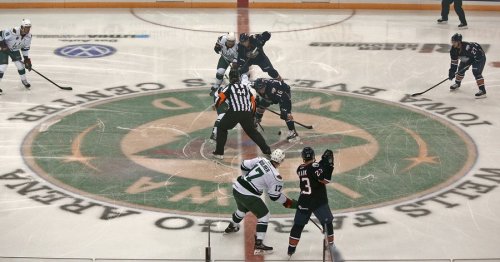
We know one thing for sure about Jason Zucker: he is about to get paid a pretty decent amount of money. It’s unclear, though, just how much he stands to make. To get a better idea of what his next contract might look like, let’s take a look at a couple of comparable players.
Kyle Palmieri
Entering the 2016 offseason, Kyle Palmieri was in a pretty similar spot as Jason Zucker is now. Palmieri was a year younger than Zucker is now and had about half a seasons worth fewer games, but the differences end there. The two players had nearly identical points-per-game numbers entering restricted free agency. Additionally, both players were on upward trajectories, having improved their offensive numbers in nearly every season. Both were also coming off seasons where they set career highs in goals, assists, and points, posting numbers they had not previously approached.
All of these similarities make Palmieri an excellent player to compare Zucker to for the purpose of determining his next contact. As the Wild and Zucker negotiate a new deal, both sides will have their concerns. Zucker will want to be rewarded for his 30 goal season, while the Wild will be cautious of overpaying a player that, prior to this season, had never passed 22 goals or 47 points. That is a similar scenario to the one that Kyle Palmieri and the New Jersey Devils found themselves in two years ago. The two sides ended up agreeing on a five year, $23.25 MM contract with an average annual value of $4.65 MM. If Zucker’s camp adjusts for inflation by asking for a contract that takes up the same percentage of the salary cap, his contract would have an AAV of just over $5.06 MM.
Nino Niederreiter
To find another player whose stats are remarkably similar to Zucker’s, the Wild do not have to look far. Wild teammate Nino Niederreiter is another easy comparison to Zucker. To make this comparison work, you have to throw out Nino’s teenage years in Long Island where he played 64 games and produced 3 points. It seems fair to do this, because he clearly turned a corner in his career when he was acquired by the Wild. After disregarding those two seasons, you’re left with two players with almost identical games played and points scored. And like the comparison to Palmieri, Nino was also coming off career highs in goals, assists, and points.
Like Palmieri and Zucker, Nino was a player that was gradually progressing as he aged but took one of his biggest steps forward in his last year before negotiating a new contract. The Wild and Nino also agreed on a five year deal, paying out $26.25 MM with an AAV of $5.25 MM. Again, if Zucker asks for a contract with a cap hit of the same size relative to the salary cap, it would come out to an AAV of $5.565 MM.
Average out the present value of Palmieri’s and Niederreiter’s contracts, and you get about $5.3 MM per year, or about $26.5 MM over 5 years. If Zucker wants a five year deal, then Wild fans should not be surprised if it is valued somewhere near here. It’s also possible that Zucker could want a shorter deal or that the Wild could try to push it longer. Zucker might want to bet on himself on a shorter deal. If he views himself as a guy who can score 30 goals every year going forward, then signing a three year contract and hitting the open market as a player who has scored 30+ goals in each of the past four years would greatly increase his earning potential. He could be talking $7+ MM, not $5+ MM. But while Zucker is thinking about betting on himself, he should consider what Palmieri and Nino did after signing their contracts. Palmieri’s goal and point totals have decreased both years after signing his current deal. Nino took a significant step backwards last season (but with the legitimate excuse of dealing with injuries). Betting on yourself obviously comes with risks. On the other hand, Zucker, a husband and father of two, might prefer the stability and security of a long-term contract.
Predicting the value of Zucker’s next contract is somewhat complicated by the fact that he does have some serious leverage over the Wild during these negotiations. That leverage comes from the NHL’s arbitration process. I talked about this briefly here, but Zucker could use the threat of arbitration to his advantage. Because Zucker is one year away from being eligible for unrestricted free agency, any contract awarded through arbitration would have to be only one year long. Zucker and his agent are in a position to say to the Wild, “this is what we want, pay it or we go to arbitration.” The Wild know that going through an arbitration hearing means a one year deal and the risk of losing Zucker next summer. This gives Zucker a ton of bargaining power to potentially increase the amount he gets paid in his next contract.
Think you could write a story like this? Hockey Wilderness wants you to develop your voice, find an audience, and we'll pay you to do it. Just fill out this form.









Recommended Comments
There are no comments to display.
Join the conversation
You can post now and register later. If you have an account, sign in now to post with your account.
Note: Your post will require moderator approval before it will be visible.